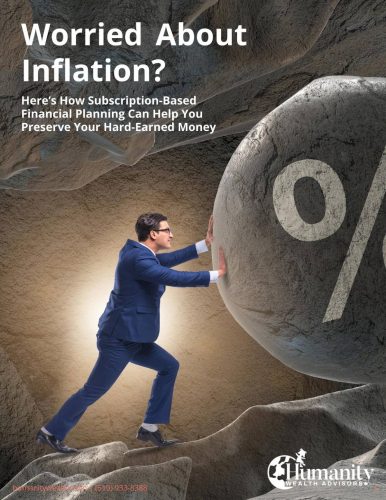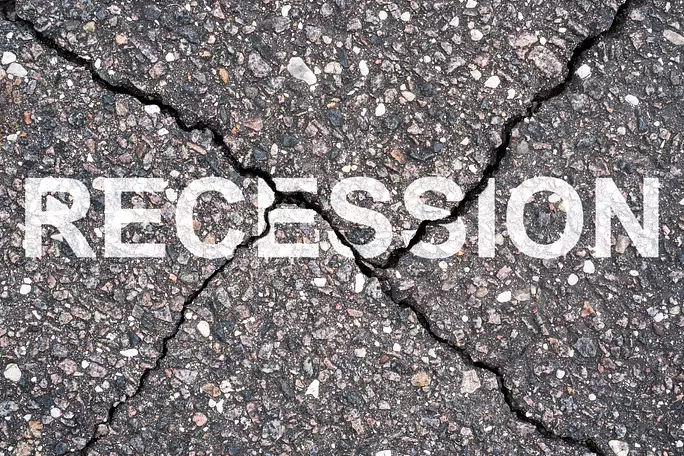Life is full of uncertainties, and none more so than the economy. As an affordable financial advisor in the Bay Area, I will tell you that the best way to prepare for a recession is by having a long-term plan that factors in all market possibilities. There are various methods within comprehensive financial planning, which is why it can be highly beneficial to get professional wealth management in Newark and San Ramon.
If you are wondering how to plan for a recession while trying to stay on track for retirement → use this guide.
You can plan for both by:
- Saving for retirement ASAP
- Paying down debt and knowing what you owe
- Diversifying your investments to help protect against market fluctuations
- Having a backup plan in case of unexpected financial hardship
- Reviewing your budget and make cuts if necessary
- Building financial literacy to understand how current events impact the market
- Taking it one step at a time with a financial advisor who follows a fiduciary standard in Newark and San Ramon
The best way to prepare for a recession may be to take a long-term approach
It can pay off to start saving for retirement sooner than later. A long-term approach (versus short-term) allows you to build up assets that have a better chance of surviving through market downturns, like stocks, bonds, and cash. Short-term investing might be attractive because it’s easy and doesn’t require much thought—but it does not consider the relatively high possibility of economic downturns that affect stock prices.
Are you saving money in your retirement accounts?
Saving money in your retirement accounts isn’t just tax-efficient—it can be a smart strategy for guaranteeing you have enough cash for retirement even during a recession.
You can get a tax deduction for your IRA contributions. So if you’re in the 25% tax bracket, every $1000 you save is actually worth $1250 after taxes are paid on the money (the $1000 plus another 25% for taxes). If you’re able to save more than that, then congratulations! You’ll end up with more savings and less taxable income.
Put your debt in perspective and know how much you owe
 If your debts are larger than 40% of the amount of money coming in every month (the rule for mortgages), it’s time to take action and find ways to lower them. You can do this by consolidating some or all of your debts into one loan with a lower interest rate, refinancing existing loans at a lower interest rate, or working with creditors and collectors on an arrangement where they agree not to report bad debt on credit reports if you make a set number of payments over time.
If your debts are larger than 40% of the amount of money coming in every month (the rule for mortgages), it’s time to take action and find ways to lower them. You can do this by consolidating some or all of your debts into one loan with a lower interest rate, refinancing existing loans at a lower interest rate, or working with creditors and collectors on an arrangement where they agree not to report bad debt on credit reports if you make a set number of payments over time.
It may be time to figure out your total debt balance.
To determine your debt-to-income ratio, divide your total monthly debt payments by your gross monthly income. To calculate this number, add up all of the bills you need to pay each month: car payment, student loans, credit card minimums—anything that requires you to write a check or pull money out of an ATM. Then divide that total by your gross monthly income.
Invest carefully to pursue your financial goals
Investing is a great tool that can help you achieve your financial goals, but it’s essential to understand the risks before you start. It can be especially risky if you don’t know what you’re doing.
Before deciding whether or not investing is suitable for your financial situation, it’s important to understand what kind of investor you are. If you’re not sure, opt-in for affordable subscription-based financial planning in Newark (and other cities/states), as provided by Humanity Wealth Advisors.
Diversify your investments to protect against market fluctuations
Stocks and bonds are two common types of investments, but they’re not all created equal. Depending on your risk tolerance and time horizon, an experienced financial advisor in Newark and San Ramon can help you create an investment portfolio that makes sense for you and your family.
Of course there are other investment options, so talk with an affordable financial advisor in the Bay Area to see what could work for you.
Have an emergency fund as a backup plan
Having a financial safety net can help you avoid financial disaster in the face of unexpected expenses. If you have no savings, or if your investment portfolio is too small to cover several months of your expenses, then a recession could feel financially devastating. You want to avoid being forced to sell assets at fire sale prices, borrow money from friends or family, or declare bankruptcy.
You’ll want to ensure that whatever amount of money you put away for emergencies is enough so that it doesn’t matter how much stocks lose—even if they all lost in value overnight, then three to six months’ worth of living expenses can be safe by virtue of being in a low-risk account earning interest while waiting out the storm.
As a plan B, review your budget and make cuts if necessary.
If and when high inflation leads to recession, stay mindful about your spending! Download this free household budget worksheet to help you re-evaluate your finances to stay on track.
Stay informed about current events and how they impact the stock market

It’s easy to get caught up in day-to-day concerns, but it’s important not to let urgent issues prevent you from achieving your long term goals. If you prefer to not watch the news or follow global economic issues, work with a professional who stays on top of it for you.
You can build financial literacy overtime by working with a financial advisor in Newark and San Ramon at Humanity Wealth who can teach you what market volatility can do to your investment portfolio.
It may feel like there isn’t much point in making long-term plans when the economy is uncertain, but this approach can help you stay on track even during rough times. While there are no guarantees when it comes to investing or saving for retirement during an economic recession, by focusing on your goals and avoiding short-term distractions, you’ll be able to enjoy a more secure future.
Work with Humanity Wealth Advisors for affordable financial advice
 As you can see, there are many steps to ensure that your retirement savings are intact. Take it one step at a time with someone who knows the ropes of comprehensive financial planning in the Bay Area.
As you can see, there are many steps to ensure that your retirement savings are intact. Take it one step at a time with someone who knows the ropes of comprehensive financial planning in the Bay Area.
It’s important not only to save money but also to invest wisely and make good decisions about where your money goes. If you have questions along the way, call us—we’re happy to help!


